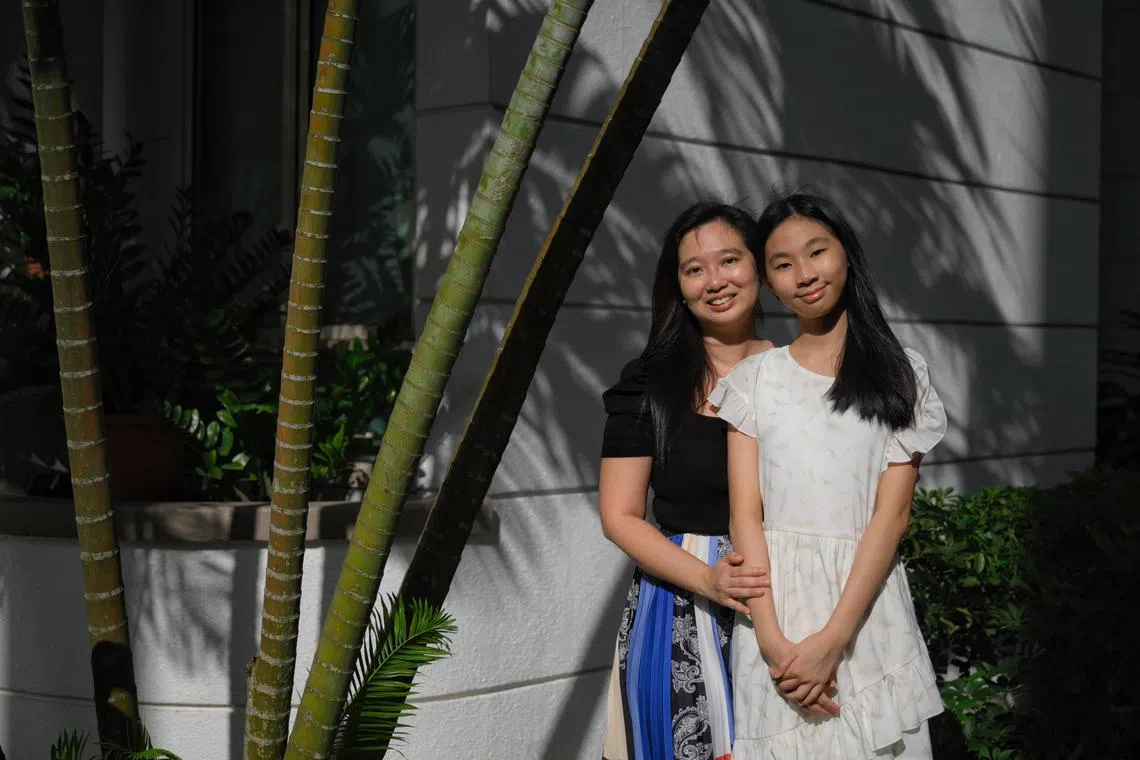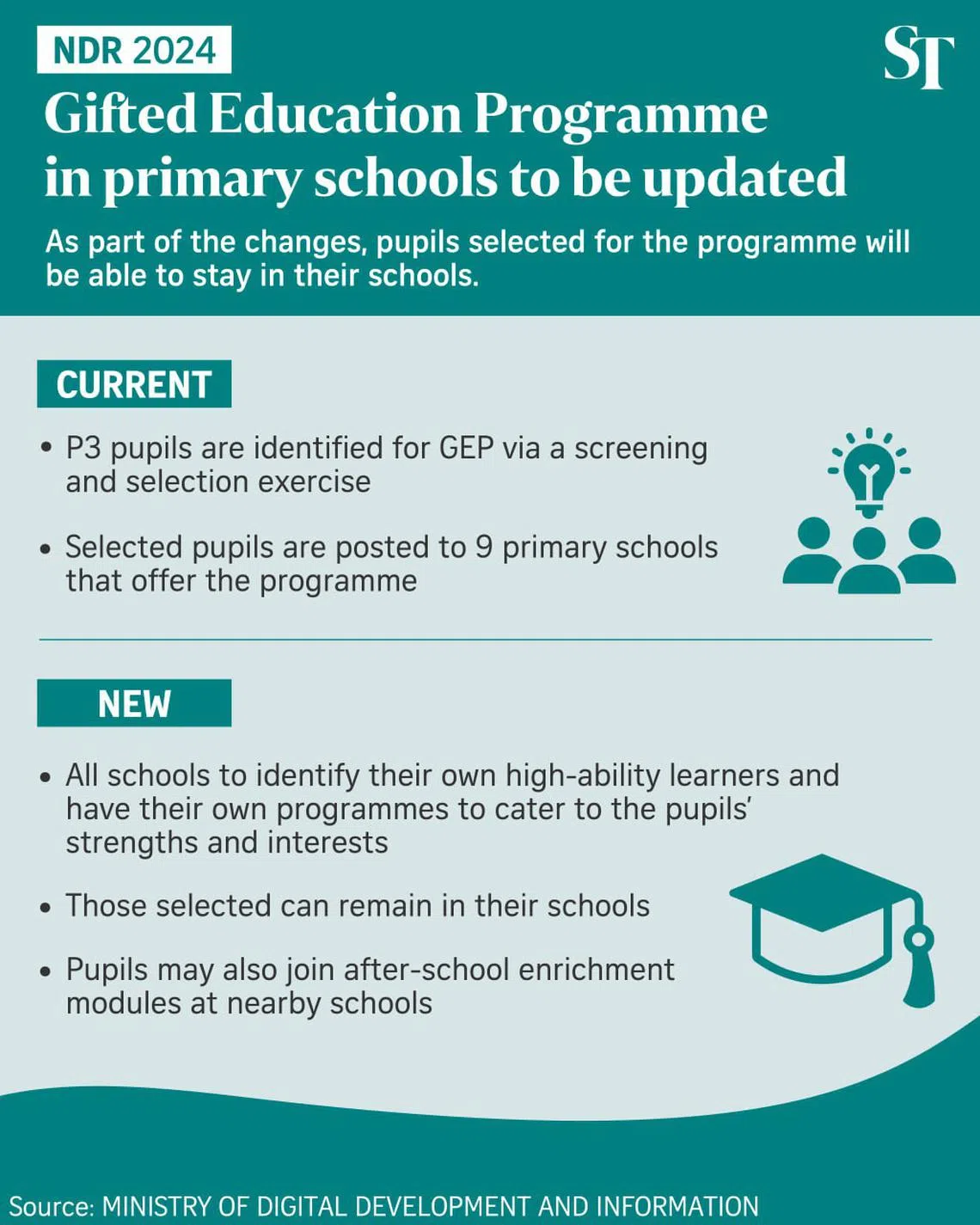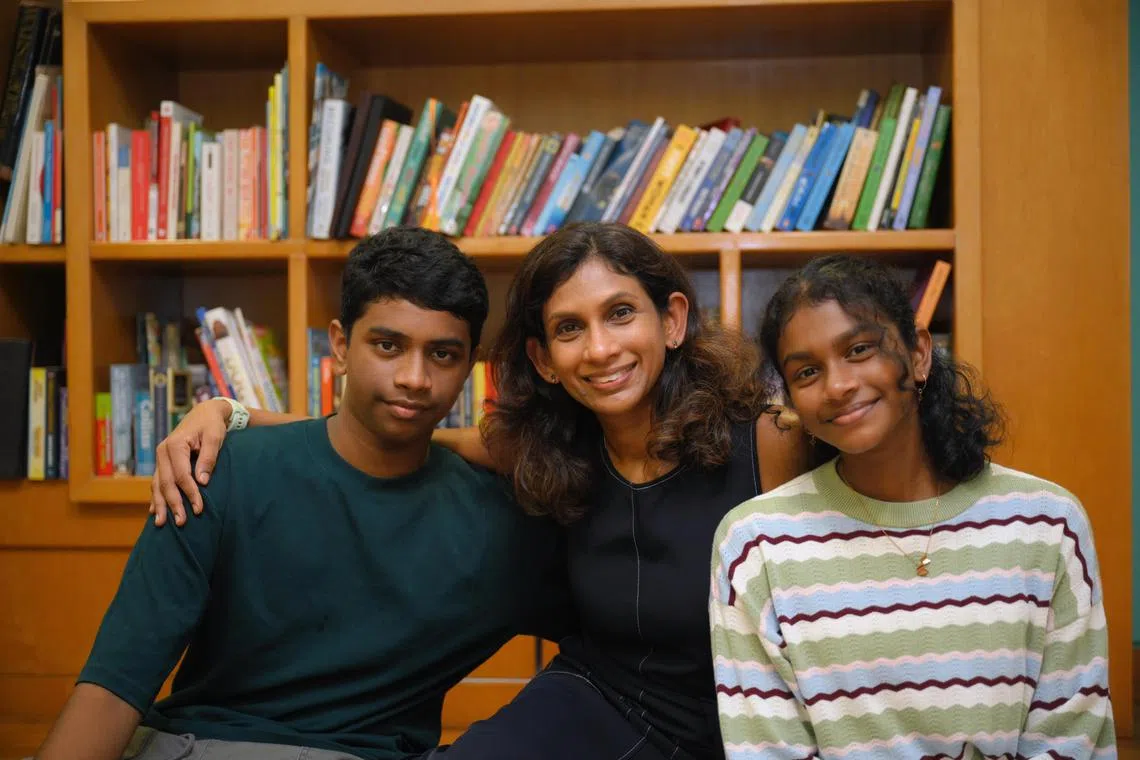Changes to Gifted Education Programme could ‘open doors’ for more pupils: Parents, teachers
Sign up now: Get ST's newsletters delivered to your inbox

Faith Ng, 12, who had a positive experience attending a school-based programme for high-ability learners, with her mother, Mrs Ng-Ho Qian Wen.
ST PHOTO: MARK CHEONG
SINGAPORE – For 12-year-old Faith Ng, being selected for a programme for high-ability learners meant she was exposed at Primary 5 to English literature, a subject that she “quickly fell in love with”.
She was one of six pupils who were pulled out of her English language class in 2023 to attend a literature programme conducted by her school, Fairfield Methodist School (Primary), said her mother, Mrs Ng-Ho Qian Wen.
Faith was reading Flora And Ulysses: The Illuminated Adventures, a children’s novel by American author Kate DiCamillo, the study of which ignited a passion for the subject.
“I have never seen her so enthusiastic about English lessons,” said Mrs Ng-Ho, a 38-year-old educator.
“She found her weekly English literature lessons fun and engaging as she was encouraged to do a critical analysis of the book... She enjoyed the in-depth study of the book and the insightful interaction that she was able to have with her peers.”
The changes to the Gifted Education Programme (GEP)
On Aug 19, the Ministry of Education (MOE) announced that high-ability learner programmes like Faith’s English literature classes would expand to take in 10 per cent of all primary school pupils
Pupils who need further development could also take after-school modules in specific subjects at designated schools nearby.
Both these programmes will admit more pupils and consider a wider range of abilities than the current GEP, which caters to the top 1 per cent of primary school pupils, MOE said.
Staying with friends in same school
Mrs Ng-Ho said Faith’s enrichment programme fit her existing schedule and allowed her to hone her interest while staying connected to her friends and teachers.
The programme was conducted during her English language period during regular curriculum time, for about an hour a week, and lasted a term.
“It also offers a chance for kids to explore new interests and grow as a community based on a common interest,” said Mrs Ng-Ho.
The new system will replace the current practice where Primary 3 pupils are selected from schools across the country for a centralised programme offered by nine primary schools, including Rosyth School and Nanyang Primary School.
The updated programme will let pupils stay in their own primary schools, where they can remain with friends and teachers whom they have bonded with.

Dr Shalini Arulanandam, 45, who had two of her children attend the GEP, said that with the changes, children will not need to make as many adjustments, like finding new co-curricular activities, making new friends and getting used to new school cultures.
The senior consultant ear, nose and throat surgeon at Singapore General Hospital, who is an alumna of the programme herself, said that children can grow more holistically at their own pace as the new system means a shift in focus from identifying and segregating children from a young age.
Her elder son Akash Sreedharan, now 15, was selected for the GEP, and transferred from Bukit Timah Primary School to Henry Park Primary School to attend the programme from 2019 to 2021.
Her daughter, Ashmita Sreedharan, who is now 13, was also in the GEP at Henry Park Primary from 2021 to 2023.

Dr Shalini Arulanandam with her son Akash Sreedharan and daughter Ashmita Sreedharan, both of whom were in the GEP.
ST PHOTO: MARK CHEONG
However, more work needs to be done to convince people that every school can provide for a high-ability child, Dr Arulanandam said.
“My greatest worry with this change in policy is that, until people can be truly convinced that every school will be able to give their higher-ability child a similar experience and opportunities, some schools will still be in much higher demand,” she said.
A timely update
Raffles Girls’ Primary School’s head of department for gifted education (languages and social studies) Elaine Chong said more children will have the opportunity to stretch their abilities.
Mrs Chong, who has taught in the GEP for 23 years, said the enrichment programmes offered by schools should not focus on academic results but on helping pupils reach their potential and pursue their passion in specific subjects.
The changes are timely, as the education system is moving towards raising students with better soft skills, said Nanyang Primary School’s head of department for gifted education (humanities) and subject head for Chinese language Ng Bee Lian.
The changes to the selection criteria, such that they will take into account teachers’ recommendations and not solely depend on the standardised Primary 3 test, will hopefully encourage children and parents to not just pursue good academic results, but also develop “an all-rounded character”, said Madam Ng, who has been teaching in the GEP for 22 years.
The new system will also make intermingling between children of different abilities more authentic and frequent, she added.
It also takes into account that different pupils mature at different stages of their lives, and they can be identified to join the high-ability programmes at any point after Primary 3, said Madam Ng, adding that enrichment can be provided as and when they are ready and interested.
She said: “Our school has observed that compared with more than 10 years ago, many pupils now have experienced hothousing before entering the programme.
“Some continue to go through many sessions of after-school enrichment out of fear that they cannot keep up, which is not healthy at all as it kills the interest in daily learning.”


